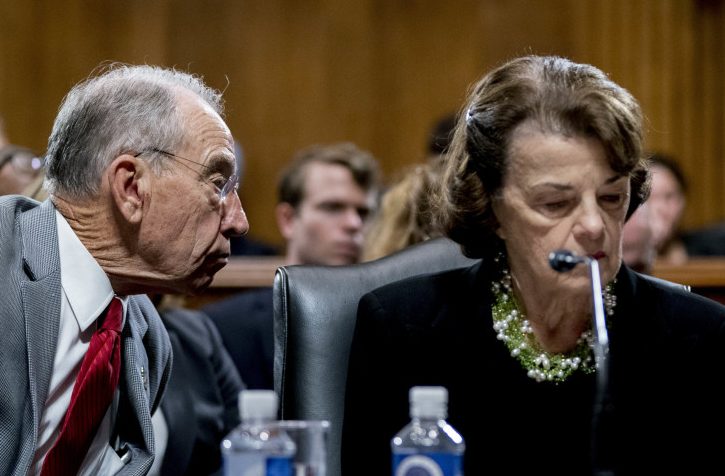If you plan on watching all or part of the Senate Judiciary Committee hearing Thursday on the nomination of Judge Brett Kavanaugh to the Supreme Court, you will not be alone. According to an NPR/PBS NewsHour/Marist poll, nearly 60 percent of Americans say they plan to follow it closely or very closely. If that many people actually tune in to all or part of the hearing, it would be an audience twice the size of a typical Super Bowl.
And what will they see? With one of the most powerful jobs in the country and the direction of the nation at stake, it won’t be a game. Witnesses will be sworn in and lawyers will ask them questions, but it won’t be a trial.
Despite the legal trappings, it is a job interview, and Kavanaugh is a candidate for a promotion. Even though it’s not an election, the millions watching at home will have a say. If the judge cannot put all concerns about his character to rest, he should not be hired.
The anticipated witnesses are Kavanaugh himself and Christine Blasey Ford, a researcher and professor from California who is the first of three women who have made sexual misconduct allegations against him. Ford says that Kavanaugh and a friend of his sexually assaulted her when they were all teenagers some 36 years ago. Kavanaugh categorically denies that he did anything like what was alleged, and declares that the public accusations against him, by Ford and two other women, are a campaign of character assassination.
This hearing is an extraordinary event that will determine how much confidence Americans have in their judicial system. There are a few rules that senators and the public should apply to what they hear.
PUT POLITICS ASIDE
Kavanaugh’s ascension to the Supreme Court would complete a five-member majority that would pursue Republican priorities on abortion rights, the regulatory authority of federal agencies and voting rights. Kavanaugh’s potential impact has mobilized the opposition to push back on his nomination. But Thursday’s hearing should not be treated as part of that fight. Republicans who want a judge like Kavanaugh should not let that influence how they weigh the evidence against him, and the same goes for Democrats who find Kavanaugh’s views unacceptable. The focus should be on what can possibly be known about what happened on a summer night in 1982, and whether it says anything relevant about the character of someone who would be confirmed to a lifetime seat on the nation’s highest court.
YOU BE THE JUDGE
Even though this is not a trial, everybody watching the hearing should listen to the testimony as if they were sitting on a jury. Jurors are allowed to consider whether a witness has a motive to lie, or stands to benefit from the outcome of the case. Jurors are instructed to compare testimony against other evidence and see whose statements are more consistent with all the information available. Sexual abuse is historically an underreported crime, in part because there typically aren’t many witnesses and there is often little physical evidence. Waiting a long time to report is neither unusual nor an indication of a false accusation.
APPLY THE RIGHT STANDARD
We are all familiar with the “beyond a reasonable doubt” standard used in criminal cases, but that’s not the right yardstick here. Neither is the “preponderance of the evidence” or “more likely than not” standard employed in civil cases.
That burden of proof makes sense only after a thorough investigation of the competing claims is complete, something that has not yet happened regarding these allegations. At this stage, even the “probable cause standard,” used to justify an arrest or a search, is too high a hurdle.
The right standard to weigh the evidence in this case is whether there is a reasonable suspicion that what Ford has alleged is what actually happened.
If the senators have more than a hunch that Ford is telling the truth, they should call for a thorough investigation conducted by nonpartisan professionals. There is too much at stake to rush to do anything less.
Send questions/comments to the editors.


